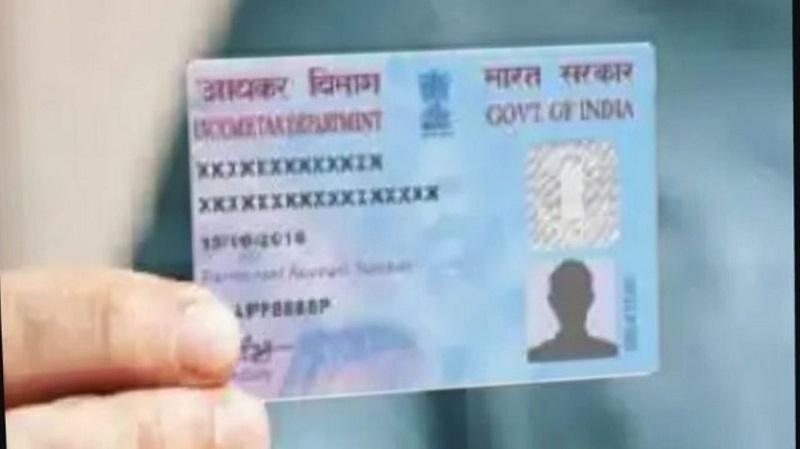The Buyt Desk
In India, PAN is mandatory to carry out many financial transactions. All know it is a must to have PAN to file income tax returns, but many more activities demand PAN.
In India, the Income Tax department issues Permanent Account Number (PAN) cards through the UTI or NSDL. It remains valid for one’s lifetime even if there is a change of address several times. The PAN helps the government keep track of tax evasion and black money as the taxman should quote the PAN card number for carrying out several financial transactions. A person not holding a PAN card needs to sign Form 60 declaration of ITR or submit an Aadhaar card number in place of PAN.
What is PAN?
A Permanent Account Number is known as PAN which is a 10-digit alphanumeric number. PAN is issued by the Income Tax Department to an Indian tax-paying citizen. PAN makes it possible for the department to link all financial transactions of an individual including tax payments, TDS/ TCS credits, returns of income/ wealth/ gift/ FBT, and many more with the department. This is the reason PAN is considered an identifier for the citizen with the tax department.
What are the cases where producing a PAN card is a must?
Below are a few cases where a PAN card is a must –
-
While buying or selling a motor vehicle
-
While opening a bank account
-
When applying for a credit/debit card
-
While opening a Demat account
-
When payment is made in cash to a hotel or restaurant against a bill at any one time and the amount exceeds Rs 50000/-
-
When payment is made in cash in connection with travel to any foreign country against a bill at any one time and the amount exceeds Rs 50000/-
-
When payment is made in cash for the purchase of any foreign currency against a bill at any one time and the amount exceeds Rs 50000/-
-
While buying mutual funds, bonds, debentures, etc worth more than Rs 50000/-
-
While depositing cash in a bank of over Rs 50000/- in a day
-
While the payment of over Rs 50000/- is made in cash during a day for purchasing banker’s cheques or bank drafts or pay orders from a bank or a cooperative bank
-
When a fixed deposit exceeds Rs 50000/- in one go or during a financial year aggregates to more than Rs 5 lakh
-
When the payment of more than Rs 50000/- is made in a financial year to pre-paid payment instruments
-
When a life insurance premium payment of more than Rs 50000/- is made in a financial year
-
While buying or selling securities, other than shares exceeding Rs 1 lakh per transaction
-
While buying or selling of shares of a company (not listed in a recognized stock exchange) exceeds Rs 1 lakh per transaction
-
While buying or selling of any immovable property exceeds Rs 10 lakh or valued by stamp valuation authority referred to in section 50C of the Act exceeds Rs 10 lakh
-
While buying or selling goods or services of any nature other than those specified above exceeds Rs 2 lakh per transaction
Why is it mandatory to have PAN?
According to the Income Tax department, in India, PAN is mandatory for
-
every citizen whose total income exceeds the non-taxable income limit
-
every citizen whose total income of any other person in respect of which he/ she is assessable during the previous year exceeds the non-taxable income limit
-
a charitable trust who have to provide a return under Section 139(4A)
-
every individual who is carrying on any business or profession and the total sale, turnover, or gross receipts are or is likely to exceed Rs 5 lakh in any previous year
-
every individual who wants to do specified financial transactions in which quoting of PAN is mandatory
-
every non-individual resident person and person associated with them, when the financial transaction entered into during a financial year exceeds Rs 2.5 lakh
The income tax authority has made it mandatory to quote PAN on the return of Income and all corresponding transactions with it. It is also compulsory to produce PAN for various financial transactions including the sale or purchase of any immovable property exceeding Rs. 5 lakh, the sale or purchase of a vehicle, or any time deposit beyond Rs 50000/-, with a bank or Post Office. It is also mandatory to quote PAN for any contract whose value exceeds Rs. 1 lakh for the sale or purchase of securities, making an application for the installation of a telephone connection, opening a bank account, payment to hotels and restaurants exceeding Rs 50000/- at one go. Even for payments made in cash for the purchase of bank drafts or pay orders or banker’s cheques exceeding Rs 50000/- during any one day, deposit in cash with a bank exceeding Rs 50000/- during any one day, payment in cash corresponding to travel to any foreign country of an amount exceeding Rs 50000/- at any one time need to quote PAN card.
What are exceptional cases of the PAN rule?
-
Minors can quote the PAN card number of a parent or guardian only when the minor does not have any taxable income
-
When an individual has no PAN, Income Tax department rules allow them to carry out any of the transactions where PAN is mandatory, by signing a Form 60 declaration which states that they do not hold a PAN card and their income is below the taxable limit
-
As per rule 114B, the central government, state governments, and the consular offices need not mention PAN card numbers
-
In some cases, NRIs get relaxation by quoting PAN






